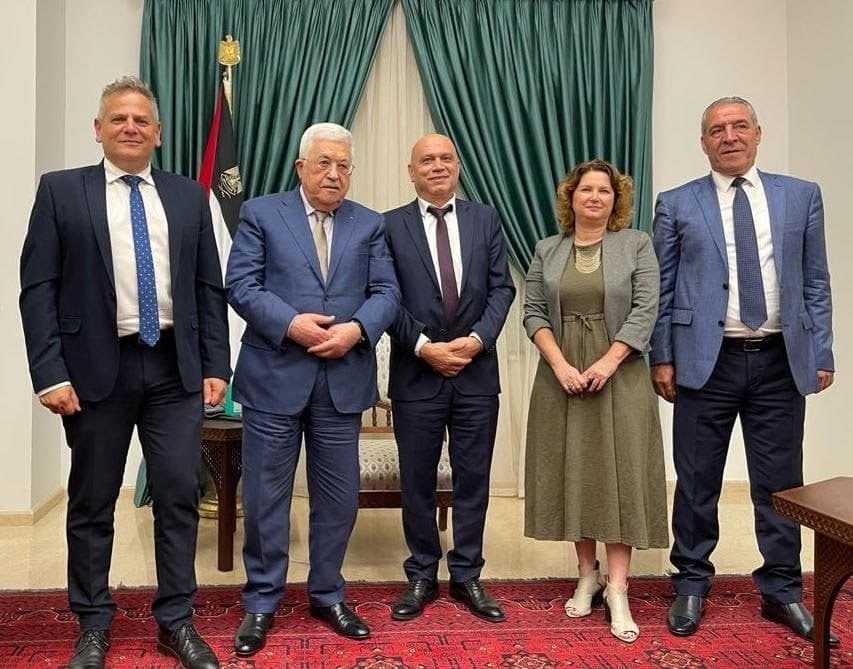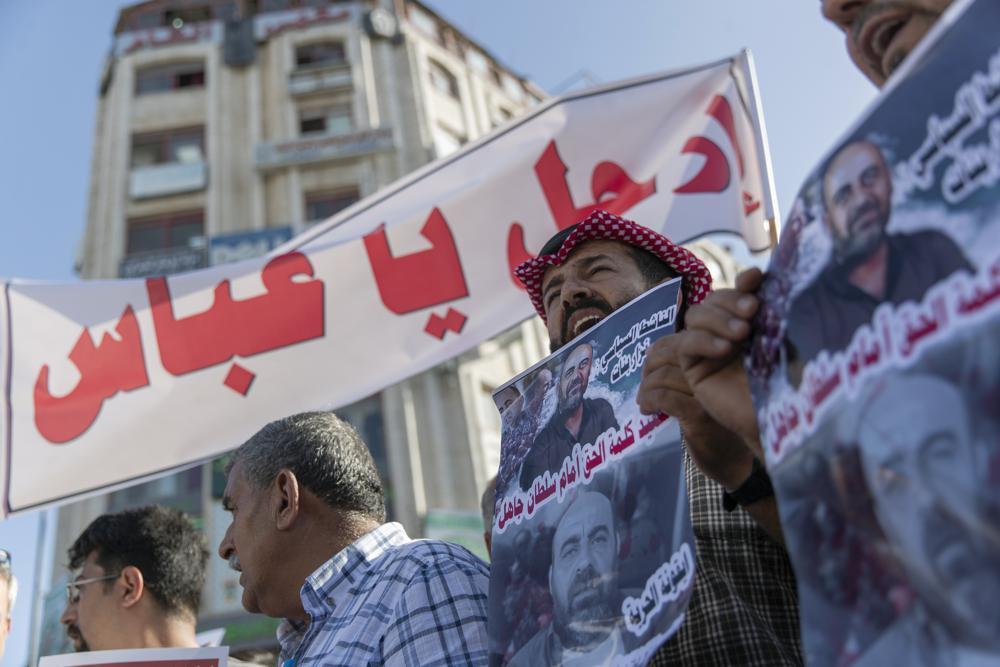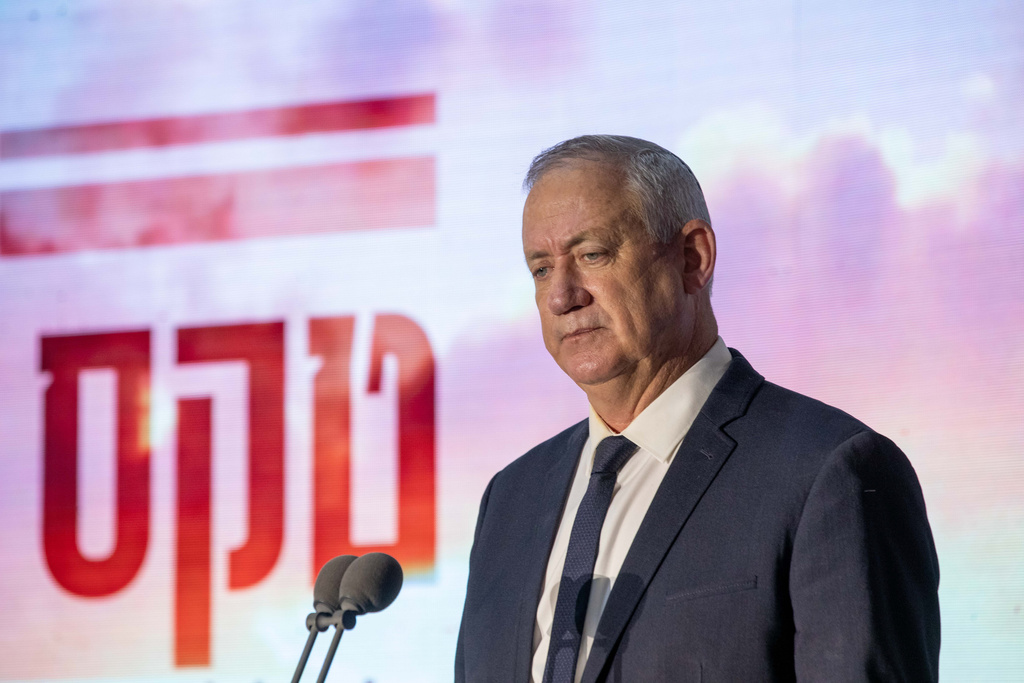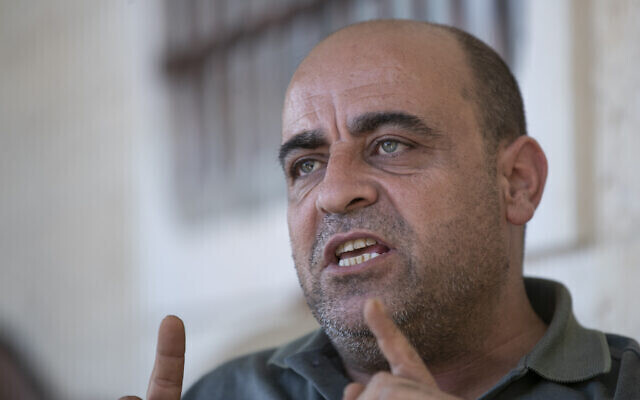Getting your Trinity Audio player ready...
The meeting between President Mahmoud Abbas and Meretz ministers Nitzan Horowitz and Iswai Frej on Sunday in Ramallah was, as expected, met with outrage from Israel's right-wing.
It also served as another opportunity for them to bash Prime Minister Naftali Bennett and other conservatives in his government - if the premier even remembers there is such a thing as "the Palestinian people," considering his speech at the UN General Assembly last month.
4 View gallery


Palestinian President Mahmoud Abbas (center-left) meets with Meretz ministers Nitzan Horowitz (left) and Isawi Frej (center-right) in Ramallah on Sunday
(Photo: Meretz)
But if anything, maybe it is time for Israel's left-wing to start rethinking the traditional pilgrimage to the Mukataa.
Take for example Defense Minister Benny Gantz's meeting with Abbas earlier this year.
While the two leaders probably talked about the importance of maintaining the security coordination between Israel and the Palestinian Authority and improve the relationship that grew pretty much stagnant under the leadership of Benjamin Netanyahu, media reports about the meeting show that it was much more than that.
According to various media outlets, Gants told the Palestinian leader that he personally supports the two-state solution and even gave him the grandiose assurance that he "wants to be the new [Yitzhak] Rabin."
What is Abbas supposed to do about this? Burst into a song, praising Gantz and the beginning of the so-called new era of peace?
Both of these meetings should be examined from another angle. It's an opportunity to show that the more moderate and left-leaning elements of the broad coalition government are still independent in their actions.
Furthermore, these photo-ops masquerading as diplomatic summits also legitimize a very problematic regime under Abbas. It is an administration with non-existent chances of reaching an agreement with Israel - even more so under the traditional idea of a two-state solution.
Abbas is no longer the leader of the Palestinian people, let alone his autonomous government in the West Bank.
It has been 16 years since the Palestinian Authority held its last elections and more than a decade since the constitutional deadline for Abbas to forfeit his position has passed.
The national Palestinian elections that were due to take place in early 2021 were canceled and it is highly unlikely they will be rescheduled to any time soon.
It has also been four months since the grisly murder of outspoken Palestinian Authority critic Nizar Banat, who died while being arrest by Palestinian police.
Initially, Palestinian authorities said Banat died of "natural causes," but it was soon discovered that it is pretty natural to die when several policemen brutally beat you to a pulp.
It also emerged that one month before his death, armed masked assailants fired at his home – a warning of what was to come.
The incident has brought up comparisons to the 2018 assassination of Saudi journalist and activist Jamal Khashoggi by agents of the Saudi government, and it again demonstrates not only Abbas' lack of control, but also his deep paranoia and fear for the future.
4 View gallery


Demonstrators carry posters with pictures of Palestinian Authority outspoken critic Nizar Banat that reads 'a Martyr of saying the truth in front of an ignorant Sultan,' and a banner that reads 'Abbas, leave,' during a rally protesting his death, in the West Bank city of Ramallah
(Photo: AP)
Is the two-state solution, which has been scrutinized and criticized more than ever over the past few years, even a viable option anymore?
Is Abbas, an 85-year-old man with little care for human rights, able to bring the Palestinian people to the forefront of a new reality that examines basic concepts, and invents new ones?
If the point of the meeting was more than just stirring up some good old Twitter beef, these questions need to trouble the Israeli Left. It would be more effective than just reporting on a "meeting in good spirits," accompanied by a photo-op no one wants to look at.



